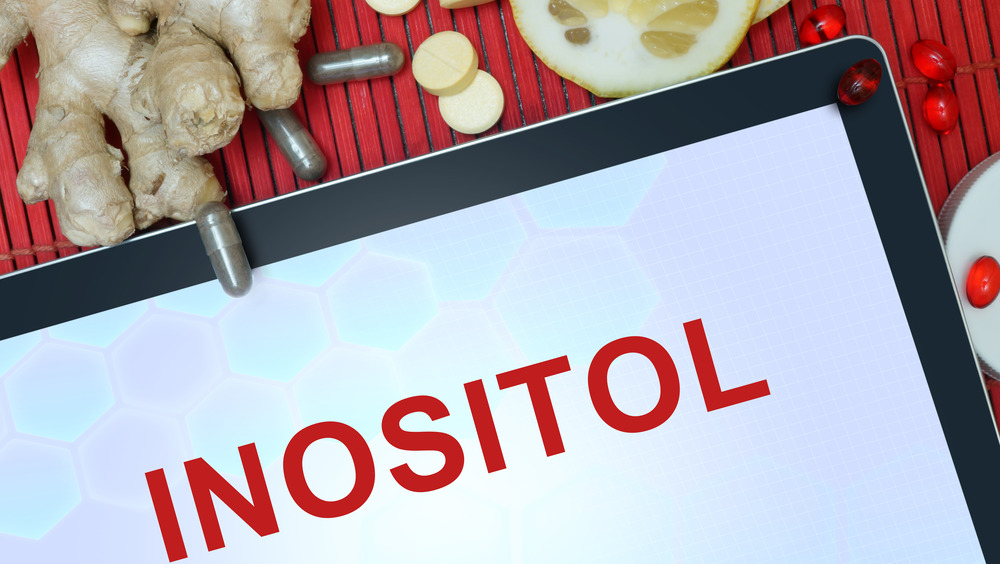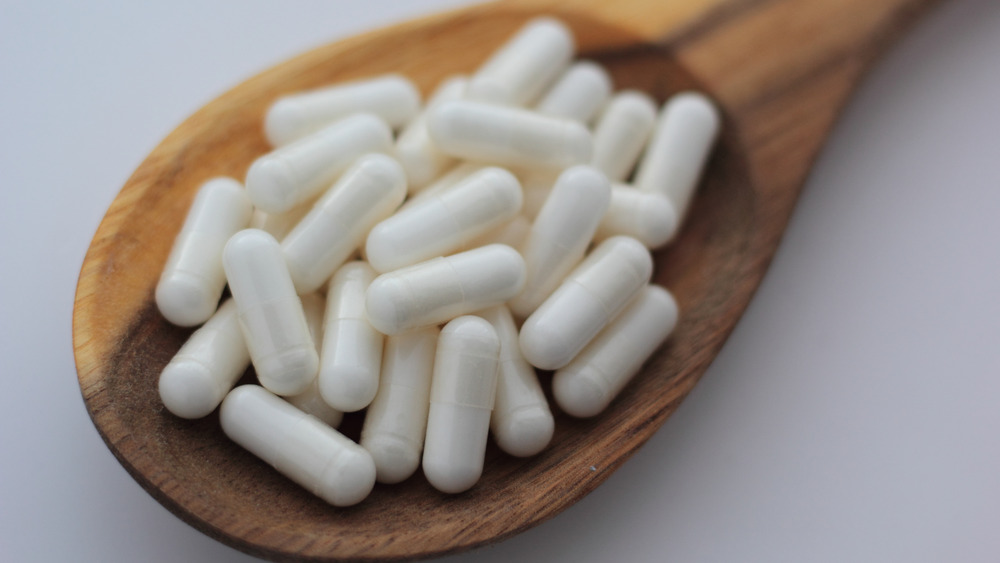Here's What Inositol Supplements Really Do To Your Body
If you've been diagnosed with anxiety, depression, polycystic ovary syndrome (PCOS), or a metabolic disorder, you may have had inositol recommended to you. But what is it exactly, and how does it work?
Inositol is a carbohydrate which is naturally found in foods as well as produced within the body. It's often called vitamin B8, according to VerywellMind, but it's technically not a vitamin at all. Rather, it's a sugar that is found in foods like cantaloupe, citrus fruit, brown rice, sesame seeds, and corn. It is also produced as a dietary supplement.
The structure of inositol is similar to that of glucose, and the body uses it in a variety of ways (via Healthline). Studies have shown that it impacts neurotransmitters like serotonin, and might provide relief for anxiety disorders like panic disorder, obsessive-compulsive disorder (OCD), and post-traumatic stress disorder (PTSD). One small study showed that people with panic disorder treated with inositol had four fewer panic attacks per week than when treated with psychiatric medication, according to the Journal of Clinical Psychopharmacology.
Several other conditions are being studied
PCOS is a condition that occurs when a woman's body creates excess hormones. Inositol has been shown to lower blood pressure, triglyceride, and testosterone levels and provide support for ovarian function (via WebMD). Women with PCOS also tend to have fertility problems, thought to be caused by problems regulating insulin. Because inositol helps with insulin sensitivity, it is thought that it may help some women with PCOS with fertility.
For people with Type 2 diabetes, inositol may offer some help when used as supplement to their regular diabetes medication. Studies have shown lower levels of fasting blood glucose after three months of inositol. Additionally, among postmenopausal women there are indications that inositol can treat metabolic syndrome. Six months of supplementation with inositol resulted in lower blood pressure and cholesterol levels among women treated.
For people with anxiety disorders, the research into inositol is pretty clear that it can provide symptom relief. And, while promising for treating many other conditions, research is still ongoing.


